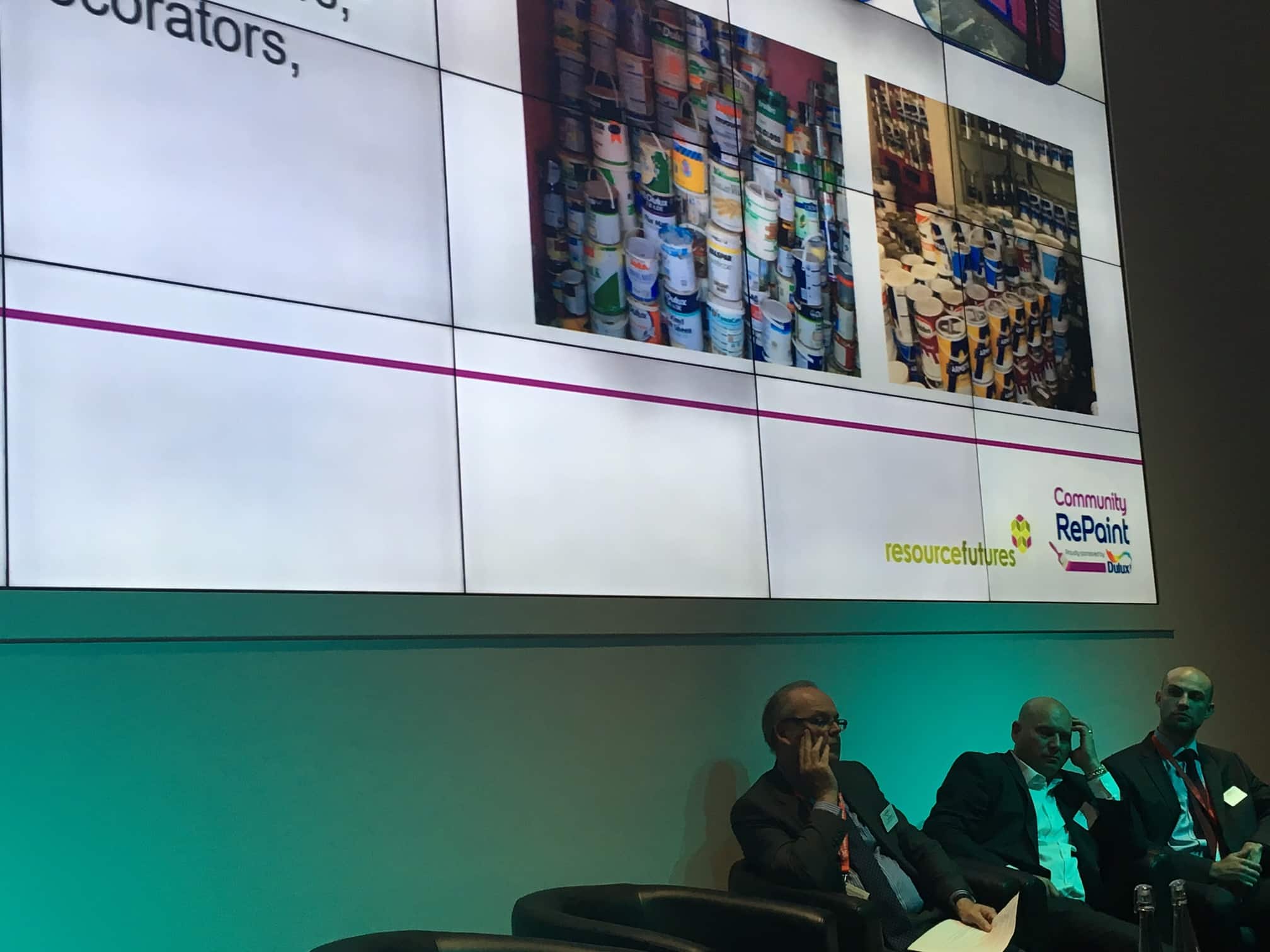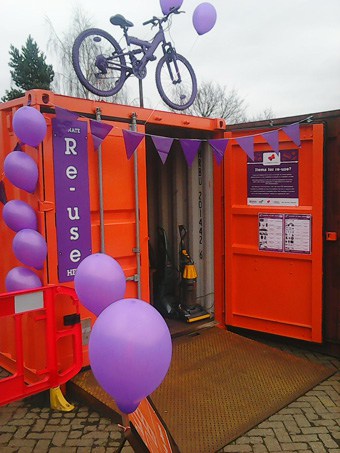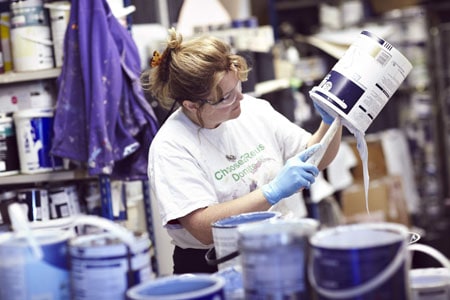The imposition of charges for some wastes at civic amenity sites in West Sussex, which were later withdrawn, did not result in an increase in fly tipping in the county.
This was one of the messages to delegates at the annual National Civic Amenity Site conference held in Coventry yesterday (14 June).
The view on a ‘no extra flytipping’ result was endorsed by Chris Chandler, senior waste manager for operations at Devon county council, who said his authority also levied charges for some materials and that there had also been no connection with flytipping.

The annual event was held at Coventry’s manufacturing technology centre
Talking about West Sussex’s charging regime for rubble, topsoil, plasterboard and tyres, interim head of waste Jim Perkins said there was “no such thing as DIY waste”.
He explained that while West Sussex had now dropped the charges after government comments in April, the measures had saved the local authority £1 million in a year. Saving money was the rationale for their imposition in the first place.
In April, in the litter strategy Defra said: “Government’s view is clear: DIY waste is classed as household waste if it results from work a householder would normally carry out.”
Dropping the charges in West Sussex, said Mr Perkins, meant the council had been faced with requests for refunds from the public when it was decided to drop the charging scheme.
He said that a potential downside of the decision to stop charging was that the authority had “lost the opportunity to deliver longer term and spend to save savings options.” And, he said that the majority of residents may have been alienated and angst caused amongst councillors.
Sentiment among several of those present at the conference was that the line in the litter strategy was wrong and that the Environmental Protection and Act and rules governing collection of household waste did not apply to DIY was and that in reality there was no true category of DIY waste.
WEEE
The discussion formed one of a wide ranging set of topics for the event.
Graeme Vickery, senior policy advisor at Defra on the WEEE Directive in the UK discussed what actually counted a waste electrical and electronic equipment from households, which producer compliance schemes are obliged to collect from civic amenity sites. He explained that items beyond the typical fridge would qualify’. He gave an example of the range of electrical items, such as cold drinks fridges found in the Argos store catalogue, which should be deemed household WEEE. Accordingly they would be collected by producer compliance schemes under the WEEE regulations.
But, he told councils that if, for example, someone arrived at an HWRC purporting to be dropping off household waste in the form of a ‘Walls ice cream’ fridge, then it was for the local authority to properly assess this at the civic amenity site and that it would not be eligible for the system as household WEEE.
Mr Vickery also noted that the number of local authorities needing to invoke the Section 34 requirement to force a PCS to collect WEEE from their civic amenity sites had reduced. Higher collection targets for fridges and other cooling equipment are a factor behind this for 2017.
Pay as you throw
The chair of LARAC, the Local Authority Recycling Advisory Committee, Andrew Bird told delegates that there were a range of questions currently on the local government agenda including whether the 50% recycling target still mattered. And, he suggested that LARAC would be doing more work on the possibility of introducing a pay as you throw system for household waste.

Reuse work with a charity partner is a feature of the Foxhall site
On the topic of bulky waste, Mr Bird said that there was a trend now towards third sector involvement in collections which was “raising quality and value. The third sector is able to go in on an appointments basis and collect these items so that they can go back into circulation more easily”.
Consultation
Talking about the redevelopment of Suffolk county council’s award winning Foxhall HWRC in Ipswich, Alison Large, waste operations officer for Suffolk county council, and Paul Smith of contractor FCC explained how improvements had been made after widescale consultation, including with planners, staff, police and the county’s waste team.
This had come after Foxhall had become busier as site numbers had changed with traffic queues a problem.
Infrastructure improvements were made and while the costs of these fell to the local authority under the contract terms, 50% had been paid for by FCC which subsequently saved on maintenance costs, which fell to it under the contract.
Paint
Martin Pearse from third sector group Community Repaint explained how the organisation was recycling paint through giving collected cans out for community work.

Delegates heard about the work of the Community Repaint scheme
He claimed that waste management contractors charged anything from £150 to £1,200 a tonne for collecting waste paint while Community Repaint charged about £285 per tonne. 55-65% of the paint collected was reusable, said Mr Pearse.
He noted that said that the Community Repaint scheme was backed by Dulux owner Akko Nobel and that the company had 44% market share in the UK and he criticised other paint producers such as Crown and B&Q for not doing more to encourage paint reuse or recycling.
He also explained that paint should not be seen as a hazardous material – it did not carry hazardous warning symbols.
Batteries
Dave Reynolds of Batteryback explained safety issues concerning batteries and highlighted the need to wrap lithium batteries but that traditional household batteries were usually safe. He also cautioned delegates over the need to ensure small button batteries were kept away from children.
He said that the Batteryback scheme, which is owned by the WasteCare group, “wants your batteries” and reminded his audience that
Repeal
Earlier in the day, lawyer Angus Evers of Shoosmiths had advised the audience of revisions to the permitting process and also highlighted the importance of the Great Repeal Bill, which rather than repealing legislation, could play a vital role in confirming current EU laws
The post Waste charges ‘don’t increase flytipping’ appeared first on letsrecycle.com.
Source: letsrecycle.com Waste Managment


